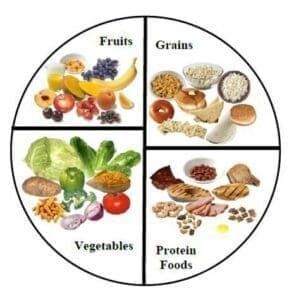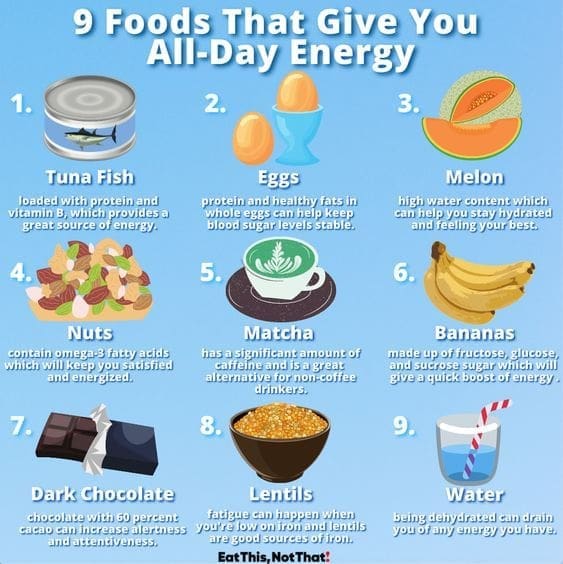Embracing a Balanced Diet for Nourishment and Well-being
Introduction:
Nutrition plays a vital role in fuelling our bodies and promoting overall health and well-being. By adopting healthy eating habits and making mindful food choices, we can optimize our physical and mental functioning, boost energy levels, and reduce the risk of chronic diseases. In this article, we will explore the essentials of nutrition and provide practical tips to help you fuel your body with healthy eating habits.
Adopting a Balanced Diet for Optimal Nourishment
To fuel your body with the right nutrients, it’s important to embrace a balanced diet that incorporates a variety of food groups. Aim to include fruits, vegetables, whole grains, lean proteins, and healthy fats in your meals. Remember, a colourful plate signifies a diverse range of nutrients, so try to add a rainbow of colours to your dishes.
Practicing Portion Control and Mindful Eating
Portion control is key to maintaining a healthy diet. Be mindful of your body’s hunger and fullness cues and strive to consume appropriate serving sizes. You can use measuring cups, visual cues, or portion control tools to help you gauge the right amounts. Paying attention to your body’s signals will prevent overeating and promote a healthier relationship with food.

Staying Hydrated for Optimal Well-being
Proper hydration is essential for overall health. Make sure to drink an adequate amount of water throughout the day to support digestion, regulate body temperature, and facilitate the transport of nutrients. Aim for at least eight glasses of water daily, and adjust based on your activity level and climate.
Minimizing Processed Foods for Better Nutrition
Processed foods often contain high amounts of added sugars, unhealthy fats, and sodium. To optimize your nutrition, it’s best to limit your consumption of processed foods and opt for whole, unprocessed alternatives whenever possible. Take the time to read food labels and choose products with minimal additives or artificial ingredients.
Including Lean Proteins and Fiber-Rich Foods
Lean proteins are essential for building and repairing tissues, supporting immune function, and providing a feeling of fullness. Incorporate sources such as poultry, fish, legumes, tofu, or Greek yogurt into your meals. Additionally, include fiber-rich foods like fruits, vegetables, whole grains, and legumes to promote healthy digestion, stable blood sugar levels, and heart health. Aim for a variety of fiber sources in your meals to reap the maximum benefits.

Cultivating Mindful Eating Habits
Mindful eating is a practice that encourages you to slow down and savor each bite, paying attention to the flavors, textures, and sensations of the food you consume. By engaging all your senses and making mealtimes a relaxed and enjoyable experience, you can enhance your digestion and make more conscious food choices.
Reducing Added Sugars for a Healthier Lifestyle
Added sugars found in sugary beverages, sweets, and processed snacks can have negative effects on your health. opt for natural sources of sweetness like fruits or use healthier alternatives like stevia or honey in moderation. By reducing your intake of added sugars, you can maintain stable blood sugar levels and support overall well-being.
Opting for Healthy Cooking Methods
The way you cook your food can impact its nutritional value. Choose healthier cooking methods such as grilling, baking, steaming, or sautéing with minimal oil. These methods help retain nutrients while
Opting for Healthy Cooking Methods
The way you cook your food can have a significant impact on its nutritional value. By opting for healthier cooking methods, such as grilling, baking, steaming, or sautéing with minimal oil, you can retain more of the nutrients in your meals. Additionally, these methods help minimize the use of unhealthy fats, making your dishes more wholesome. Get creative in the kitchen by experimenting with herbs, spices, and flavourful ingredients to enhance the taste of your dishes without relying on excessive salt or unhealthy additives.
Mindful Snacking for Sustained Energy
When hunger strikes between meals, it’s important to choose nutritious snacks that provide energy and nourishment. Opt for options like fresh fruits, vegetables with hummus, yogurt with berries, or a handful of nuts. Be mindful of portion sizes to avoid overindulging and practice mindful snacking by focusing on the flavors and textures of your snacks. By making wise choices during snack time, you can maintain stable energy levels throughout the day.
Conclusion:
Nourishing your body with healthy eating habits is essential for optimal health and well-being. By embracing a balanced diet, practicing portion control, staying hydrated, minimizing processed foods, incorporating lean proteins and fiber-rich foods, cultivating mindful eating habits, reducing added sugars, opting for healthy cooking methods, and choosing nutritious snacks, you can fuel your body with the nutrients it needs to thrive. Remember, it’s a journey, and small, consistent changes can lead to significant improvements in your overall quality of life.
Disclaimer
The content is purely informative and educational in nature and should not be construed as medical advice. Please use the content only in consultation with an appropriate certified medical or healthcare professional

